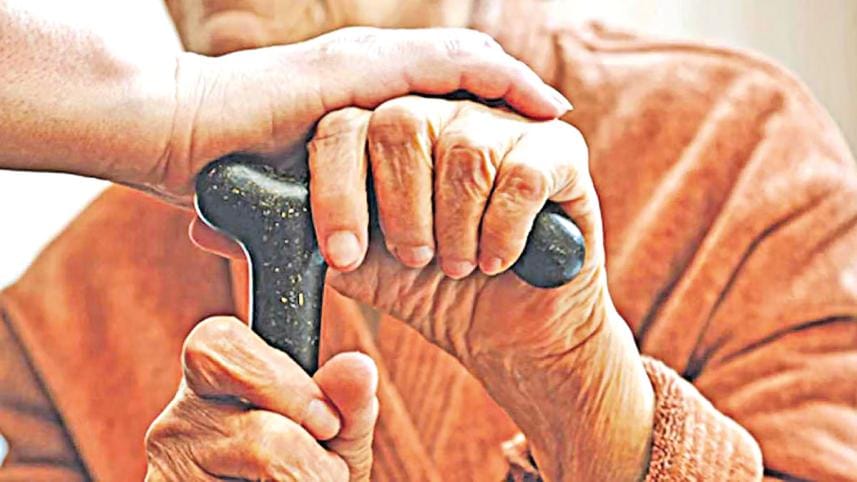Improving our elderly well-being framework

According to UN demographic predictions, the percentage of the global population over 65 has almost doubled, rising from 5.5% in 1974 to 10.3% in 2024. This percentage is expected to increase even further, reaching 20.7% between 2024 and 2074. Although developed countries have the largest percentages of elderly individuals, developing countries are witnessing a rapid growth of their elderly population that is five times that of many Western industrialised nations. Among these countries, South Asian developing countries are demonstrating strong evidences to join as an active member in the ageing countries club.
Bangladesh, as a new addition to this 'club', is facing multi-faceted problems- socio-economic, cultural, legal and political. However, Bangladesh is still failing to place sufficient importance on this issue in its political agenda. As a recent initiative, the political parties are promising to increase social safety networks and securing various socio-economic services for the elderly people to gain political popularity among the general public.
Regulating elderly well-being in Bangladesh takes place through four approaches. These approaches are- informal familial and community approaches; state-oriented legal and institutional approaches; voluntary charitable approaches; and lastly, private approaches. The informal familial approaches are declining for multiple reasons, including socio-economic transitions, changes in family patterns, rapid urbanisation and industrialisations, and the fading away of social values among the 'new generations'. On the other hand, voluntary charitable old homes are mostly financially and administratively inadequate in serving the rapidly increased elderly population of this country. These existing shortfalls oblige the acceleration of the fourth approach- the private approach, which include various private organisations such as private nursing homes, private old care homes, private hospitals, etc. However, this fourth approach is profit-driven and oftentimes beyond the capacity of common people.
The public legal regulatory approach focuses on some substantive laws, such as The Maintenance of Parents Care Act 2013 and some policy initiatives, such as the National Policy on Older Persons 2013, the National Health Policy 2011, etc. Besides these, there are some social safety schemes in operation, such as old age allowances, vulnerable group feeding card, etc., which arrange some monetary and other essential support from the government funds. However, these initiatives and legal benefits often never reach those who are in need of it the most. The above complexities in various existing regulatory approaches for elderly well-being created some unavoidable problems in ensuring a sufficient and sustainable well-being scheme for the older people in Bangladesh. In these scenarios, we need to ask ourselves if we should think of a new mechanism for ensuring elderly well-being in Bangladesh.
Should the long-lasting taboo on formal institutional elderly well-being be broken now? Can the elderly well-being be better catered through a for-profit social business model which will be financially and administratively self-sufficient and sustainable? All these thoughts will provoke the multi-disciplinary research for establishing sustainable elderly well-being scheme in our country.
The writer is PhD Candidate, School of Law, University of New England, Australia and Assistant Professor, Faculty of Law, Jagannath University, Bangladesh
 For all latest news, follow The Daily Star's Google News channel.
For all latest news, follow The Daily Star's Google News channel.
Comments